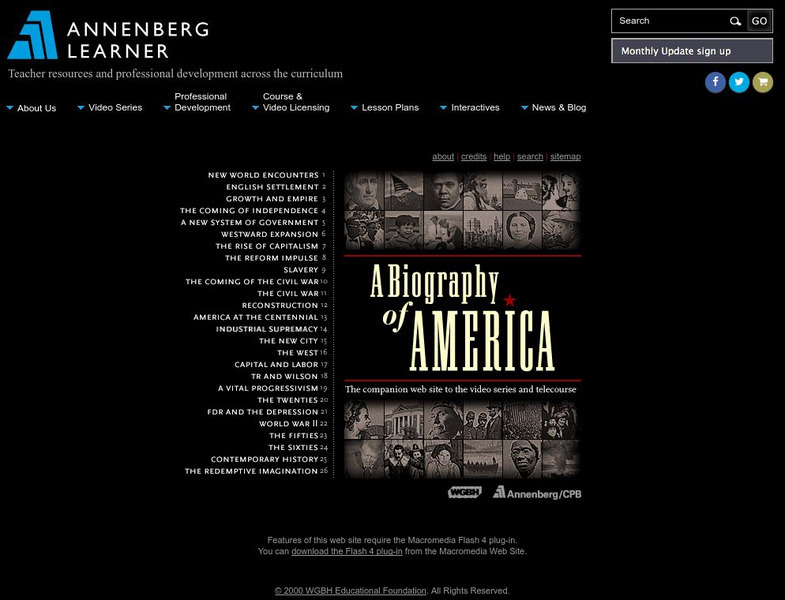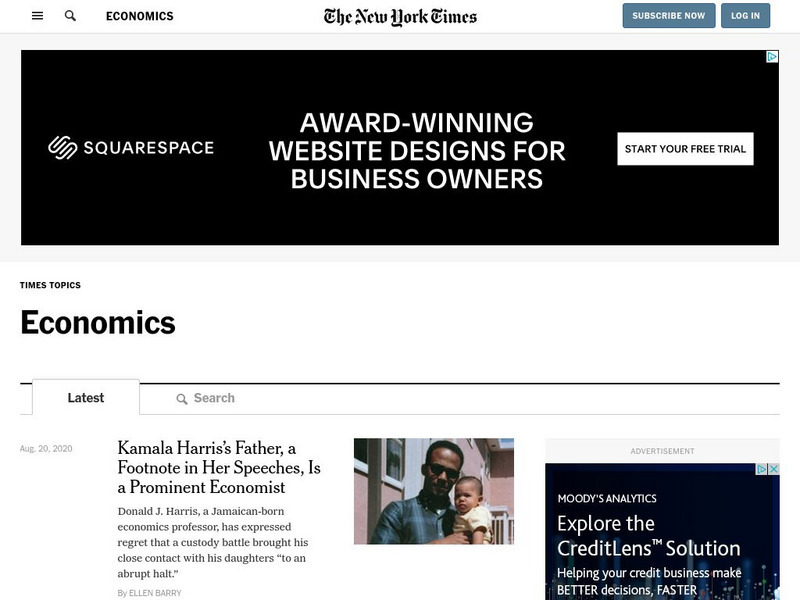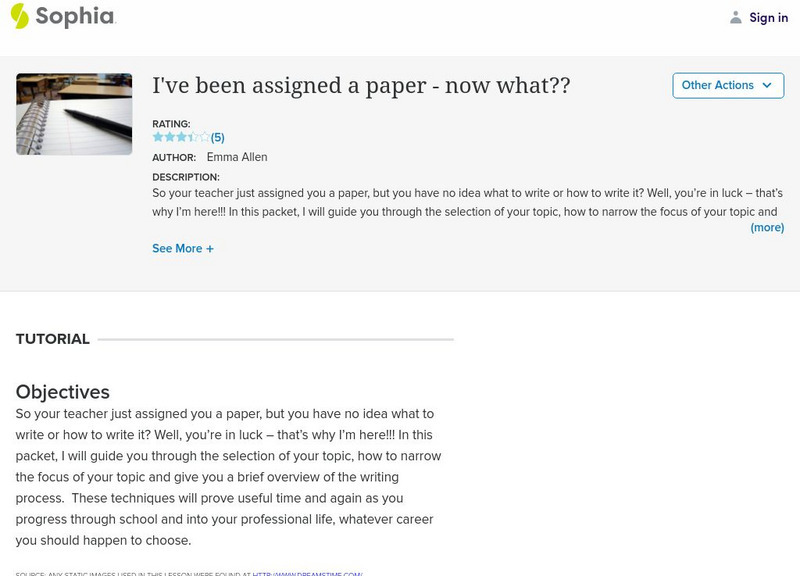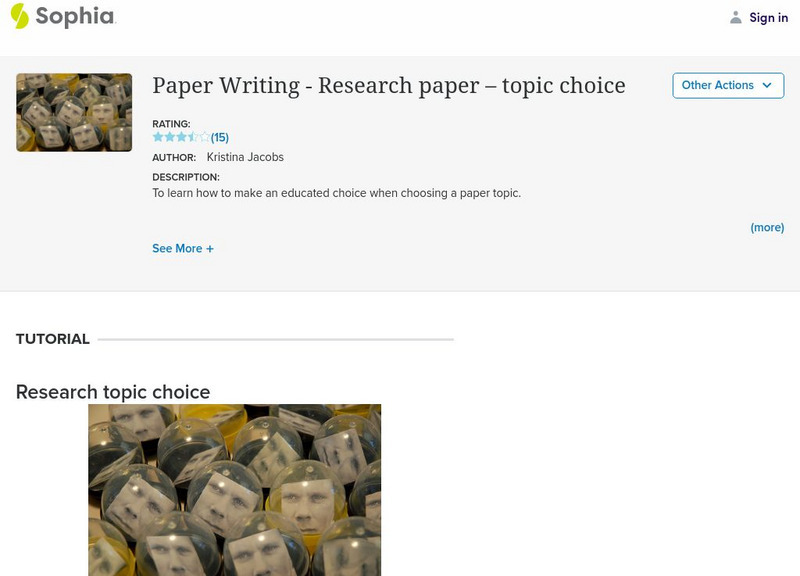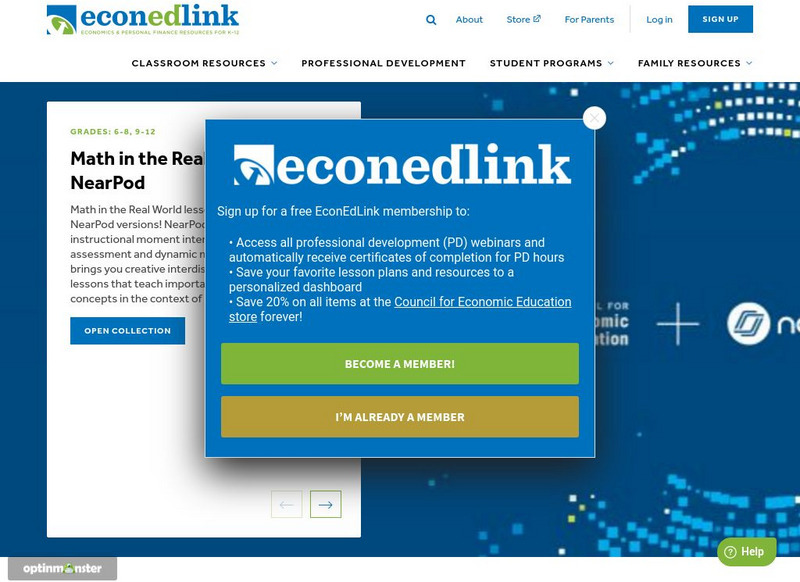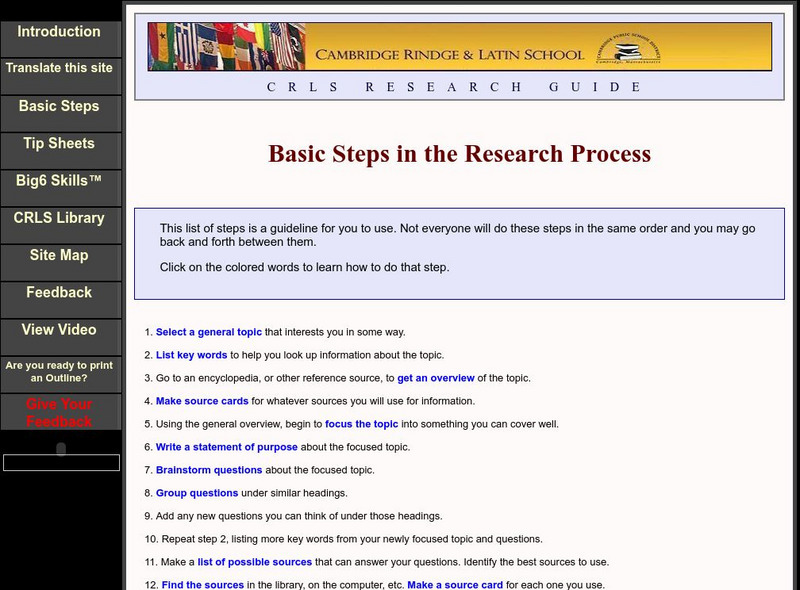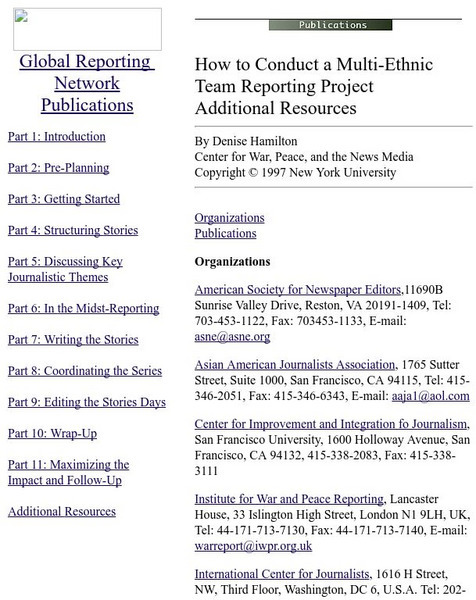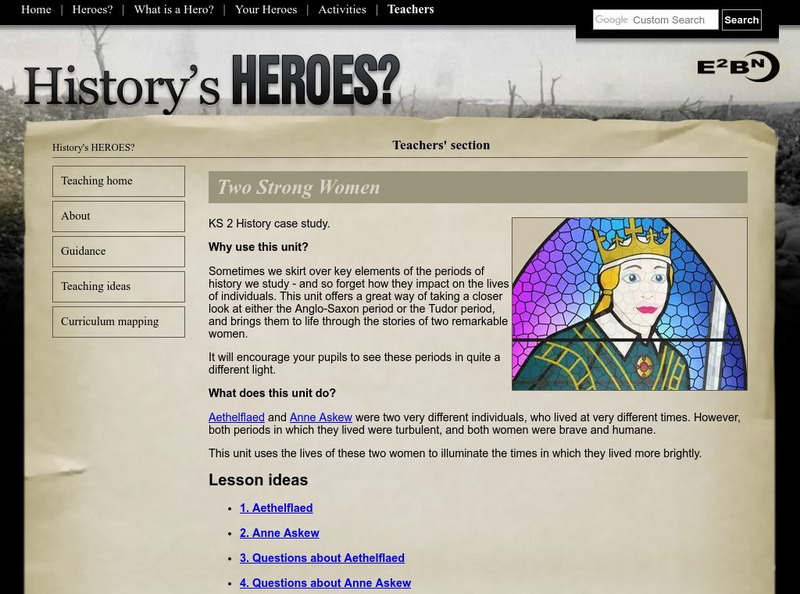Annenberg Foundation
Annenberg Learner: A Biography of America
Learn about the full sweep of U.S. history at this comprehensive site based on a PBS series and telecourse. The series compresses several centuries of events, issues, and people in U.S. history into twenty-six half-hour programs. A team...
Wyzant
Wyzant: History and Politics Out Loud
A searchable archive of politically significant audio materials for scholars, teachers, and students.
New York Times
New York Times: Economics News
[Free Registration/Login Required] Economics News about Economics, including commentary and archival articles published in The New York Times
Stanford University
Beyond the Bubble: History Assessments
[Free Registration/Login Required] A collection of innovative assessments, interactive rubrics, and annotated samples of student work with an emphasis on primary source documents for the use in a wide range of history concepts.
Stanford University
Sheg: Document Based History: Reading Like a Historian: Historical Thinking
[Free Registration/Login Required] This chart elaborates on the historical reading skills of sourcing, corroboration, contextualization, and close reading. In addition to questions that relate to each skill, the chart includes...
Stanford University
Sheg: Document Based History: Reading Like a Historian: Snapshot Autobiography
[Free Registration/Login Required] What is history? And why do historical accounts differ? For this lesson, students create brief autobiographies and then reflect on the process to better understand how history is written. Exploring...
Annenberg Foundation
Annenberg Learner: Bridging World History: History and Memory
Are history and memory different? Peruse the various resources this unit provides for the way we view, know, and relate history to our family, our friends, and the world.
Sophia Learning
Sophia: I've Been Assigned a Paper, Now What?
This tutorial focuses on selecting and narrowing a topic for a literary paper. It offers a flow chart of the writing process and two videos brainstorming topics using a web-style graphic organizer for each of two novels: "To Kill a...
Sophia Learning
Sophia: Paper Writing: Research Paper: Topic Choice
This tutorial focuses on choosing a topic and narrowing or expanding the focus to fit the requirements for a research paper. It provides tips like clustering, using a Venn Diagram, Google Scholar, etc. to find and narrow the topic. It...
Sophia Learning
Sophia: Research Sources
This slideshow lesson focuses on research sources by listing 10 types of sources: books, periodicals/magazines, newspaper articles, scholarly articles, databases, reviews, interviews, lectures, media (film, television), and websites. It...
Sophia Learning
Sophia: Research Sources: Periodicals
This slideshow lesson focuses on the use of periodicals as research sources; it discusses the pros of using periodicals as organizational aids and in research of current events and also the cons of periodical's lack of depth and possible...
Council for Economic Education
Econ Ed Link: Econ Ed Link Collection
Use this collection of economic education lessons for K-12 teachers and students to improve financial literacy. One interesting feature is "This Day In Economic History," a calendar which identifies an interesting event for each day,...
Annenberg Foundation
Annenberg Learner: America's History in the Making: Historical Thinking Interactives
Six interactive activities are presented that walk students through how to use their critical thinking skills in the analysis of historical artifacts and documents. The sixth one explains how to balance the various perspectives that...
Cambridge Rindge & Latin School
Cambridge Rindge & Latin School: Basic Steps in the Research Process
A comprehensive list of the important steps in researching and writing a report or project. Includes links to tip sheets for each step.
Boston University
How to Conduct a Multi Ethnic Team Reporting Project
This site offers a phenomenal plan for assembling a culturally diverse journalism team to work on a story (or series of stories) of social significance. This extensive guideline provides step by step instructions. (Note: some links may...
University of North Carolina
University of North Carolina: Writing Center: Handouts: Evidence
What kinds of evidence best support the points you make in a paper? Where can you find the evidence you need? This handout answers all these questions and more, including the difference between primary and secondary sources. You'll also...
Virginia Tech
Digital History Reader: Introduction
An online learning module for the U.S. and European history. Presents central questions of key events in history. Students explore data, evaluate conflicting accounts or interpretations, and develop conclusions based on primary evidence....
Center for Innovation in Engineering and Science Education, Stevens Institute of Technology
Ciese: Historical Treasure Chests
After learning to distinguish between primary and secondary sources, students will examine four primary documents and address a set of questions for each.
University of Oregon
Interviewing Tips: Listen and Respond
In-depth & interesting presentation on how to conduct interviews. Includes tools of the trade such as tape records -- benefits & disadvantages of using them -- along with important do's & don'ts. A few tips on how to maintain...
American Rhetoric
American Rhetoric: Communication Journals
This is an index of communication journals and their publishers with links to the journals.
East of England Broadband Network
E2 Bn: History's Heroes: Two Strong Women
This unit features Aethelflaed and Anne Askew, two women from two different periods of England's history, who demonstrated great strength and fortitude in their respective eras. Identify similarities and differences of the women and...
Texas Education Agency
Texas Gateway: Analysis of Relative Values of Specific Data, Facts, and Ideas
[Accessible by TX Educators. Free Registration/Login Required] In this lesson, students can practice finding specific types of sources and learn the questions to ask when evaluating information for a persuasive essay.
Texas Education Agency
Texas Gateway: Evaluate Tone in Various Media for Audiences and Purposes
This lesson features several weather videos, both real and created, to help students understand how information and the tone changes based on the audiences and the purposes for the presentation.
Texas Education Agency
Texas Gateway: Gathering Appropriate Information (English Iii Writing)
[Accessible by TX Educators. Free Registration/Login Required] This lesson focuses on finding and evaluating relevant sources for a research project. It includes primary and secondary sources and print and internet sources. W.11-12.2...
